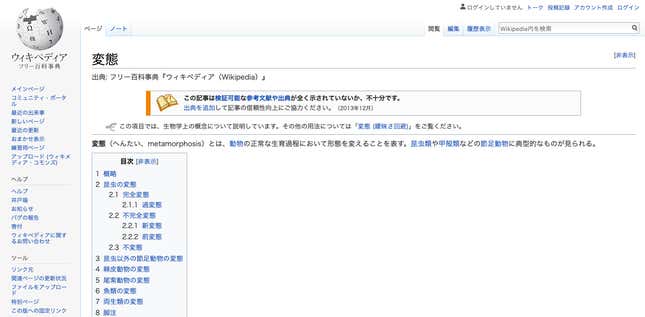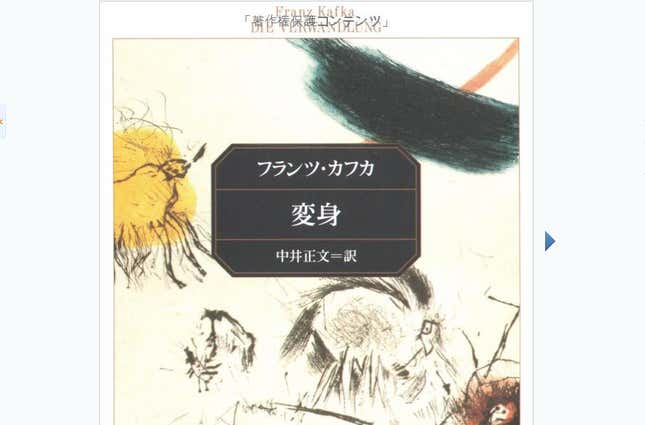
“Hentai is brilliant,” reads the title of a recent Guardian article about a British game show contestant who won a round with the word “hentai.” But what does “hentai” actually mean, and how has that meaning changed? Let’s dive into the word’s etymology!
The Oxford Dictionary defines “hentai” as “A subgenre of the Japanese genres of manga and anime, characterized by overtly sexualized characters and sexually explicit images and plots.” The origin of the word in English is given as “1990s Japanese, literally ‘abnormal, perverted.’”
The first Japanese character (変) in the word hentai (変態) literally means “strange” or “curious” (変), while the second kanji character (態) means “state” or “condition.”
Today in Japanese, the word does refer to people who are perverted or abnormal (as noted by the character Hentai Kamen, above), but that isn’t the only definition. Hentai also means “metamorphosis,” as in the complete changes insects make into their adult form.

As Kotobank notes, before that, during the 18th century for example, hentai was also used to note when the condition of things, such as the moon, for example, looked different.
During the early 20th century, the term hentai seiyoku (変態性欲) or “sexual perversion” was coined with seiyoku (性欲) meaning “sexual desire.” However, hentai seiyoku was shortened simply to “hentai” in colloquial speech due to Japanese speakers’ preference to shorten long words. The term hentai then began to take on a new, sexual meaning. One early example dates from 1931 when the modernist writer Riichi Yokomitsu used “hentai” in relation to collecting a woman’s personal artifacts.
This definition continues. In contemporary Japanese, as website Takashionary explains, saying that someone has a “hentai hobby” (変態な趣味 or hentaina shumi) means that the interest is sexual in nature and abnormal.
The word hentai, it seems, also became the basis of the Japanese slang ecchi (エッチ), which is the Japanese pronunciation of the letter “H.” However, during the Meiji Period (1868-1912), the slang term ecchi apparently referred to the “h” in the world “husband.” However, in the decades that followed, it appears ecchi began to refer to the “h” in “hentai.” The term ecchi came into wider colloquial use by the mid-1950s, and by the 1980s, the slang “ecchi suru” (to have sex) was in use.
Writer and game translator Matt Alt points to a thread by Yoshihiro Watanabe, a producer at Studio Orange. Watanabe explains that the term “hentai” isn’t used in Japan to refer to a specific anime or manga genre.
It’s no doubt for the best that Kafka’s book is called Henshin (変身) in Japanese and not Hentai (変態). Though, I can’t say the same about Freeza’s ultimate hentai...
